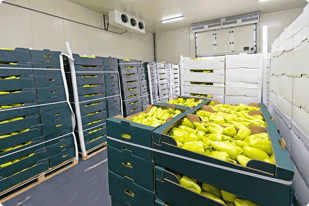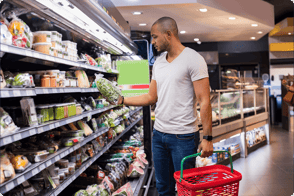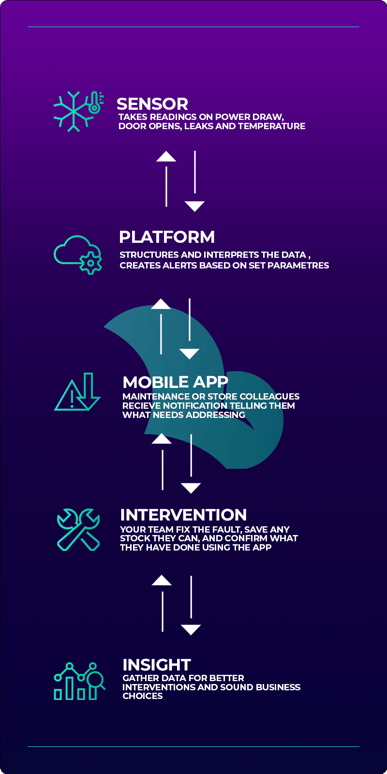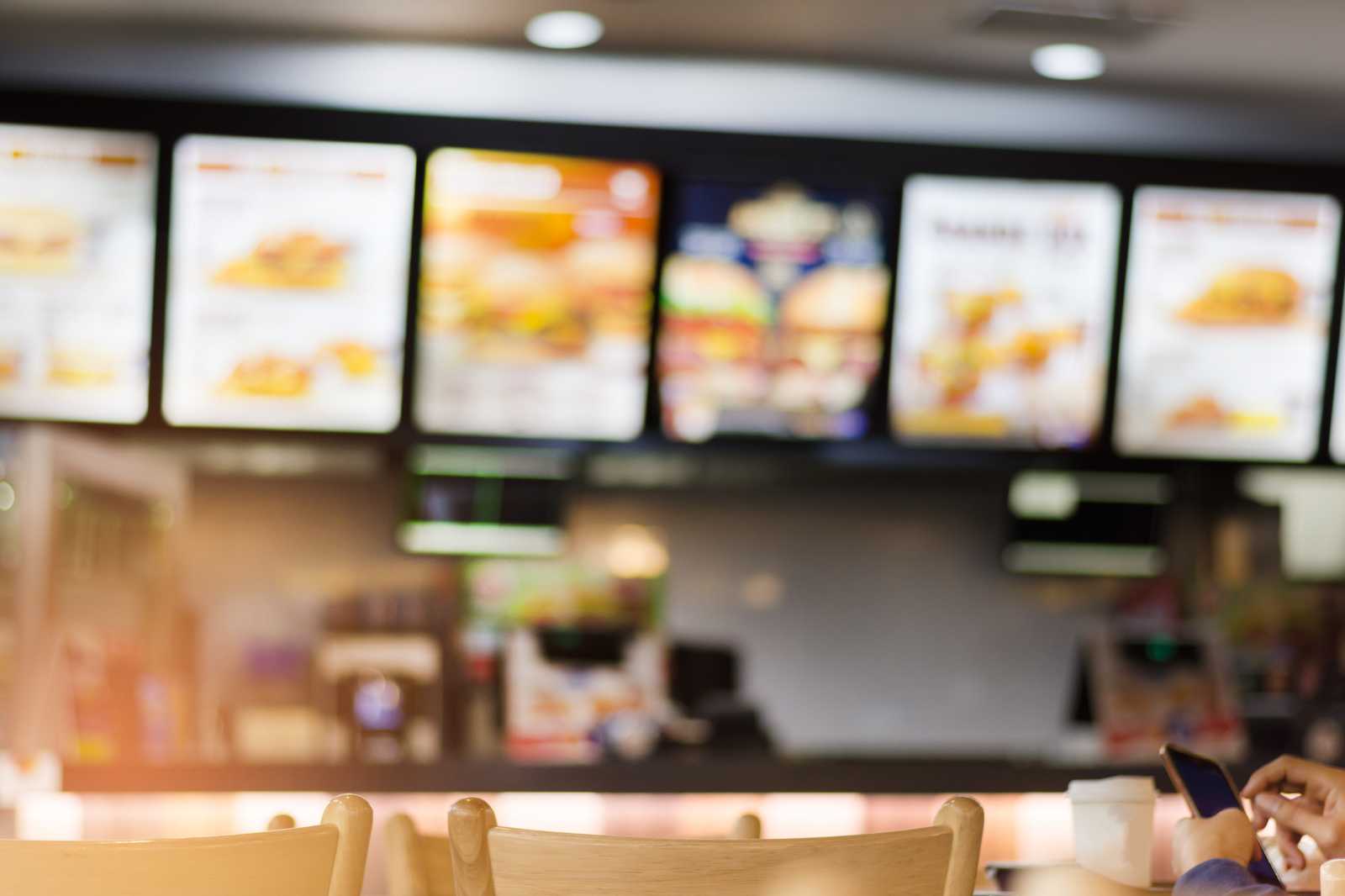How FM software is streamlining the Food Industry - mpro5
The food service industry has been revolutionized in recent years thanks to facilities management software like ours. Read on to find out how...
3 min read
 Sam Roberts
Mar 23, 2023 12:00:00 PM
Sam Roberts
Mar 23, 2023 12:00:00 PM
Is there anything more annoying than someone in your household (you know who it is) leaving the fridge door open?
Or worse still, they leave the freezer door open, and a miniature glacier forms in between the seal and the door, forcing you to chip at the ice like a Scandinavian fisherman.
This is a blog about that, except it's happening in your business, and it could be costing you a lot more than a few semi-defrosted chicken kievs.
How often are your colleagues forgetting to shut that door?
A study carried out by Disruptive Technologies shows that cold room store doors are left open 36% of the time, and 21% of the time in warehouses. When your main priority is the customer, it's easy for small things like this to be forgotten.
But when you consider that, if you're a supermarket retailer, more than half your energy spend goes into these units, and they will be working overtime if they aren't closed. The total energy lost is chilling.
£2.5 - £3.5million
That's a big number, and it's the estimated annual cost of food wastage as a result of failed fridges and freezers for a retailer with 300 stores.
Shrinkage is always a problem when you sell lots of fresh and frozen food, but it's a real headache when a fridge unit goes down.
Hopefully, you're able to save some of that stock, but being forced to move it into the back isn't ideal - because you're now missing those customer sales.
If it happens before peak morning time, your numbers for the week are not going to look great, and you'll have lots of disappointed customers.
The third problem to consider is sustainability. You've no doubt made great strides in this area already - every business has started to dig deep on this issue, but have you considered how tightening up your maintenance regime could make this easier?
The fact is that poorly maintained assets drain more power than well maintained ones. Again, response times can be slow if you're busy getting the product out onto the shelves, facing up and helping customers.
The good news is that there is an alternative solution to having to police the fridge doors and constantly nag your colleagues - smart asset maintenance.
This means using sensors, a mobile works management platform and the humble smart phone, to put you within arm’s length of any unit on your site, regardless of how far away from it you are.
These sensors will continually monitor your fridge unit's vitals: door status (open or closed), power draw, leak detection and temperature.
When any of these conditions go critical (as defined by your business), the sensor will send the data to your platform, which can automatically alert a store colleague or your maintenance team.
They will receive the notification on their smart phone, if they're using your app of choice, and know which unit needs tending to, and whether to get the tool box out.

It all sounds very cool, but what are the benefits of this system?
For starters, it means you've got a tech solution that supports your colleagues - it's not realistic to expect people to never leave a door un-closed, but it is reasonable to have an automated way of reminding them.
Secondly, reducing maintenance and store colleague response times when a failure does happen will minimise your downtime and maximise the opportunity to save stock.
Finally, it will help your maintenance team by giving them the data needed for a flawless maintenance regime, both for their PPM (Planned Predictive Maintenance) and ad-hoc.
If you want to take it a step further, you can even automate ordering new parts when they are needed.
Check out a distilled diagram of this process below:

The moral of this fridge and freezer saga is that the key to creating more sustainable operations and reducing costs is having real visibility of the data. It gives you control of the situation and understanding of the problems.
You will discover things about your business you didn't even know were important - it could be, for example, that the particular model of fridge you have on one site is far less efficient towards the end of its life-cycle than another brand, making it easy to make a business case for some new units.
So next time you're standing with your hands on your hips frowning at the cold-store door rolling on its slider, remember there's a tech solution waiting in the wings.

The food service industry has been revolutionized in recent years thanks to facilities management software like ours. Read on to find out how...
Imagine walking into a store and seeing a mess in the front display units: Shelves are disorganised, stock low and a prior customer abandoned their...
Safe & legal logbooks are the bedrock of any compliance regime and are filled out for hundreds of specific purposes by most employees on a daily...